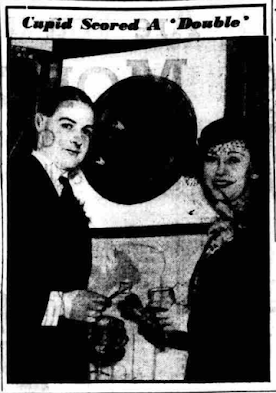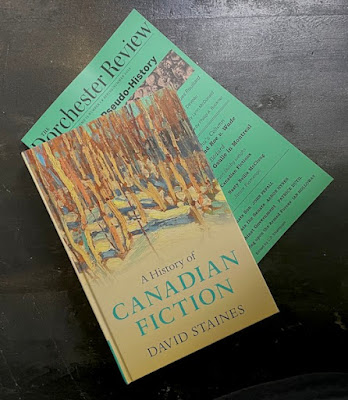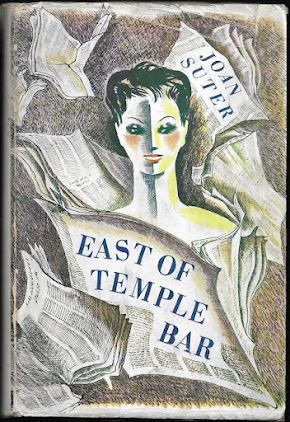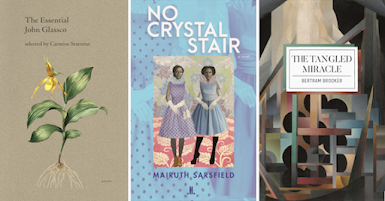Joan Suter was thirty-seven when her first novel, East of Temple Bar, was published. She'd begun her working life as a fashion illustrator, then headed for Fleet Street, east of Temple Bar, where she found employment as an editor for Amalgamated Press and the George Newes Firm. Suter also wrote short stories under the name "Leonie Mason," which led to some confusion when the London Daily Herald (18 August 1938) reported on the marriage of "Miss Leonie Mason who writes fiction under the name of Joan Suter" to journalist Ogilvie "Punch" MacKenzie Kerr.
 |
| London Daily Herald, 18 August 1938 |
According to the Daily Herald, the wedding followed "a romance of 14 days, which began when they met in a darts match."
Sadly, by the time East of Temple Bar was published, Joan and Punch were no more. She had yet to divorce, but had already met second husband James Walker, a major in the 12th Canadian Tank Regiment. They married in Toronto on 20 September 1946. From that point onwards she wrote as "Joan Walker," and erased East of Temple Bar and her Leonie Mason fiction from her bibliography.
I review
East of Temple Bar in the new issue of
Canadian Notes & Queries. The exercise brought to mind my work on
A Gentleman of Pleasure, a biography of self-described "great practitioner of deceit" John Glassco.
Speaking of Glassco, Carmine Starnino's
The Essential John Glassco (Porcupine's Quill)
is one of the three reissues I chose for the What's Old feature;
No Crystal Stair by Mairuth Sarsfield (Linda Leith Publishing) and
The Tangled Miracle by Bertram Brooker (Invisible Publishing) are the two others.
All three belong on your bookshelves.
Invisible, let me know what you're up to!
As always, Seth provides the cover. The Landscape, his regular feature, concerns the long-dead Montreal Standard's magazine supplement.
Margaret Atwood looks at the the short stories of Clark Blaise.
Other contributors include:
Marc Allen
Barry Baldwin
Elaine Coburn
Robert Colman
Jeffery Donaldson
sophie anne edwards
Sadie Graham
Brett Josef Grunisic
Tom Halford
Rhiannon Ng Cheng Hin
Kate Kennedy
Marius Kociejowski
Kim Johntone
Robin Mackay
David Mason
Dominik Parisien
and
Alice Petersen
Jean Marc Ah-sen interviews Dimitri Nasrallah.
Megan Durnford interviews Céline Huyghbaert.
Sindu Sivayogan adapts Shyam Saladurai's Cinnamon Gardens.
As always, the last page belongs to Stephen Fowler, who serves up Melva E Adams' Marshmallow Magic. Self-published in 1978, it belongs in every Canadian kitchen.
Subscribers receive John Metcalf's The Worst Truth: Regarding A History of Canadian Fiction by David Staines.
Sixty-one pages in length, I read it in one sitting.
Subscriptions to
Canadian Notes & Queries can be purchased through
this link.
My review of Prof Staines' history was written for another magazine.
It's coming.

















